How I got into the Mind of a Seven-Year-Old Narrator by Gail Aldwin – Guest Post
How I got into the Mind of a Seven-Year-Old Narrator by Gail Aldwin – Guest Post
Today on the blog we welcome author Gail Aldwin, with her guest post ‘How I got into the mind of a seven-year-old narrator‘ concerning her new book, This Much Huxley Knows, which was released on 7th July 2021. This post contains affiliate links.
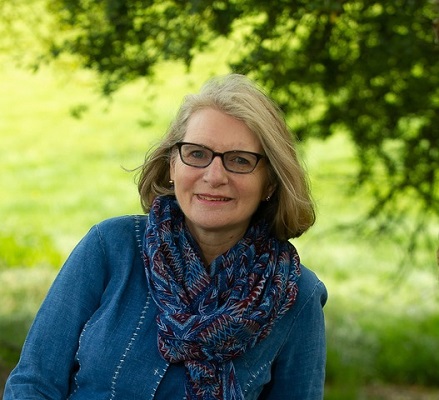
Novelist, poet and scriptwriter, Gail’s debut coming-of-age novel The String Games was a finalist in The People’s Book Prize and the DLF Writing Prize 2020. Following a stint as a university lecturer, Gail’s children’s picture book Pandemonium was published. Her second contemporary novel This Much Huxley Knows uses a young narrator to show adult experiences in a new light.
Gail loves to appear at national and international literary and fringe festivals. Prior to Covid-19, she volunteered at Bidibidi in Uganda, the second largest refugee settlement in the world. When she’s not gallivanting around, Gail writes at her home overlooking water meadows in Dorset.
How I got into the Mind of a Seven-Year-Old Narrator
Entering the World of a Child
This Much Huxley Knows tells a story of tensions in a south London town following the Brexit referendum in 2016. By using a young narrator, I was able to offer a new perspective on community cohesion (or lack of it) at home, in school and throughout the locality. A child’s concerns relate to the small things in life but which frequently appear very big to them. An adult’s outlook is so much broader. Getting into the mind of a child, with all their joys, worries and preoccupations takes some doing. To create a convincing voice, this is exactly what I had to do. So, how is it possible for a mature, woman writer to enter the mind of a seven-year-old boy?
Mining Memories
Creating a voice for Huxley turned out to be very freeing. In terms of age and gender, we’re at opposite ends of the scale and this worked in my favour. I wasn’t tempted at any stage to slip into the kind of language I might use and this made Huxley’s voice more consistent. To enter the world of a young narrator is an act of imagination although in my case, I also drew upon personal experience. My twenty-five-year-old son was a young boy once, so I mined my memories of him to feed into Huxley. For over two decades, I worked with children in schools and included anecdotes from those days. But, to capture the emotional experiences of a child, I drew upon my own memories of the highpoints and pitfalls of childhood.
The Inner Child
Engaging with my inner child was a starting point. Whenever I was upset as a young girl, I used to hide in the airing cupboard. To recreate that sense of being contained, I cleared out the cupboard under my stairs, (a long overdue job) and re-experienced sitting in a quiet, dark place where feelings, thoughts and ideas mingled. Although I couldn’t tuck my chin on top of my knees and hug my legs as I once did, it was still possible to get a sense of a young child’s emotional experience of puzzling about relationships with friends and family.
Childhood Experiences
Other experiences brought great joy to the writing process. I always loved visiting the playground in our local park as a child. I can still squeeze onto a swing and experience the exhilaration of flying through the air. Huxley is more interested in hanging from the monkey bars and it was possible to imagine his sense of achievement in getting all the way across. I was never a tree-climbing girl, but I loved the view from the top of the slide, so I used those memories to feed into scenes where Huxley gets stuck up a tree (and a friend of the family rescues him).
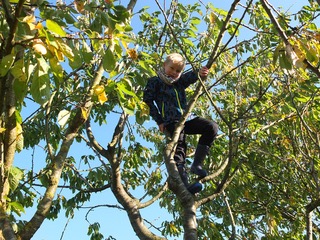
Advice from Another Author
According to Kit de Waal (author of My Name is Leon which uses first person narration from a nine-year-old caught up in the care system) she spent time on her knees in an attempt to see the world from the same height as her child protagonist. The opening to This Much Huxley Knows takes place at a fundraising event in the school hall. Using Kit de Waal’s technique, it was easy to understand Huxley’s preoccupation with pushing through skirts and trousers in a crowded space rather than looking up at adult faces. Indeed, when Huxley is forced to meet the eyes of adults, this sometimes gives him a crick in the neck!
Style of Narration
The device of child narration enables a writer to connect with readers in a different way to conventional novels. The child’s experience is necessarily limited and therefore the adult reader has to work a little harder to understand what is happening from the hints and clues provided by the child. In this way, child narration interprets the experiences of adults and offers the chance to understand situations in a new way. This is one of the pleasures of using child narration, giving voice to experiences that are less frequently shared in adult fiction.
Publisher – Black Rose Writing
Pages – 223
Release Date – 7th July 2021
ISBN 13 – 978-1684337316
Format – ebook, paperback

I’m seven years old and I’ve never had a best mate. Trouble is, no one gets my jokes. And Breaks-it isn’t helping. Ha! You get it, don’t you? Brexit means everyone’s falling out and breaking up.
Huxley is growing up in the suburbs of London at a time of community tensions. To make matters worse, a gang of youths is targeting isolated residents. When Leonard, an elderly newcomer chats with Huxley, his parents are suspicious. But Huxley is lonely and thinks Leonard is too. Can they become friends?
Funny and compassionate, this contemporary novel for adults explores issues of belonging, friendship and what it means to trust.
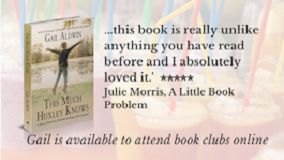


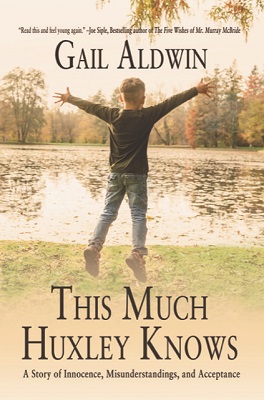



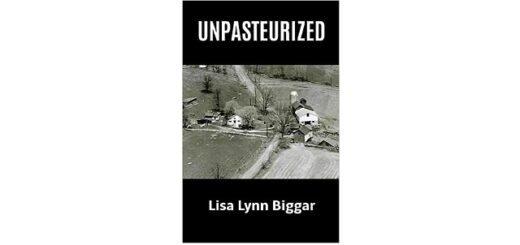
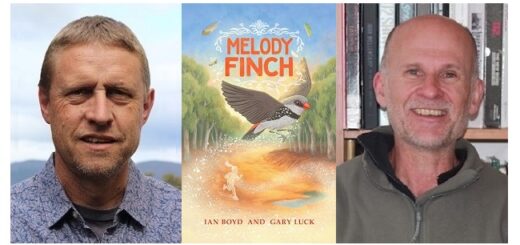

Hello Stacey, thank you so much for having me as a guest on your blog. It’s fabulous to have your support in spreading the word about This Much Huxley Knows.
I always marvel at how talented authors can reel themselves so thoroughly back into thinking on a child’s level long enough to produce a book.
This is an enlightening post. Thank you for sharing.
Great post. It’s really interesting to get yourself back into a child’s mindset. I’ve been reading a lot of children’s books lately and it brings up all those emotions from childhood.
You are very welcome Gail. Lovely to be featuring you.
Thank you DJ, I can totally agree with you on that.
Thank you Kate, I totally agree with you about children’s books taking you back in time to being a child yourself.
Thank you Nadene, you are very welcome. Glad you like it.